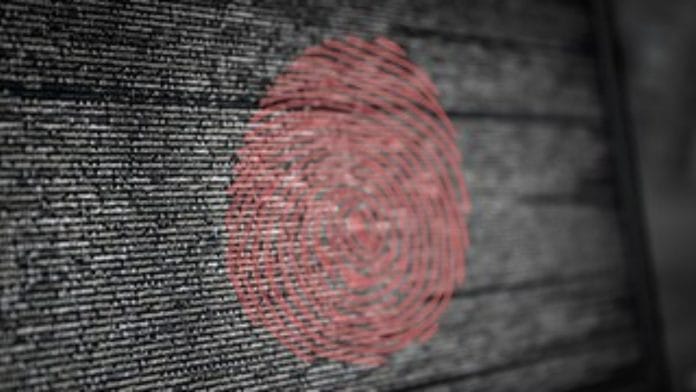New Delhi: A study on privacy regulations across the world put India among the worst countries when it comes to protecting its citizens, citing a lack of stringent laws and policy.
Britain-based Comparitech looked at privacy protection and the state of surveillance in 47 countries to see “where governments are failing to protect privacy and/or are creating surveillance states”. Not one country showed any consistency in protecting privacy, and in fact most are actively surveilling their citizens, the study said.
Countries were rated on a score of 1 – 5 on the basis of their privacy laws, discretion and surveillance systems.
A high score of 3.5 – 5 means countries uphold privacy standards with some consistency and adequacy, while a score around 2 shows a systemic failure, and anything lower indicates extensive surveillance.
India scored 2.4, ranking just above China (1.8) and Russia (2.1) but far below countries such as Israel (2.9) and the Philippines (2.8). The average score was found to be between 3.2 – 2.7. Ireland topped the list with a 3.2 rating, while Norway emerged the best among non-EU countries with 3.1 score.
On India, the Comparitech study said its concerns were centered around several factors, such as the lack of a Data Protection Bill, Aadhaar and a low Press Freedom ranking.
Also read: In Aadhaar, Supreme Court did not probe if it is a tool to track citizens
From noting that a Data Protection Bill is yet to take effect and there isn’t a data protection authority in place to the Centre allowing 10 government agencies to decrypt, monitor, and intercept data on any computer, the study listed 10 issues.
The government has also been in long term discussions with social media aggregators like Facebook and WhatsApp for tracing digital messages in order to curb misinformation. In case of failure for interception of digital messages, the service aggregator shall face prison term upto 7 years.
The study also noted how footage from CCTVs is hardly regulated and laws regarding the camera information are structurally weak and open interpretation.
Also read: Indian media controlled by a few, a risk to press freedom and pluralism: Study
The repercussions of weak privacy laws, and subsequent diminishing of press freedom in India has claimed the lives of as many as 6 journalists in 2018, instilling fear not only in them but also in other citizens, the stud said.
However, it also noted India’s efforts towards data privacy, including the Supreme Court’s move to block private companies from accessing the Aadhaar database.






